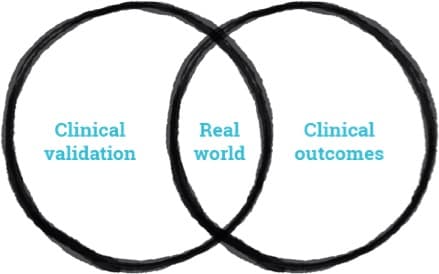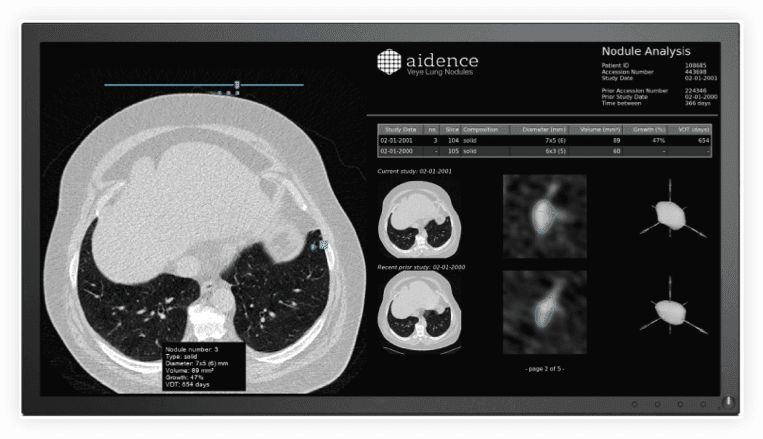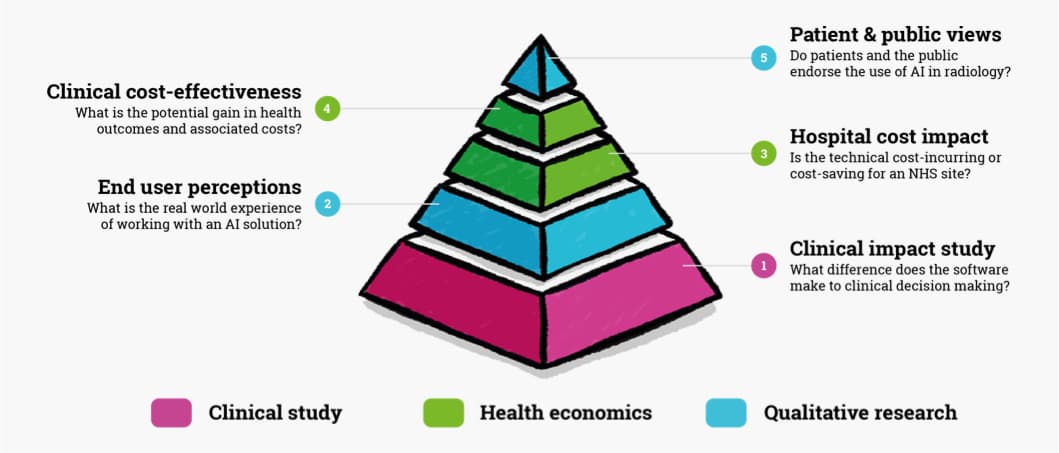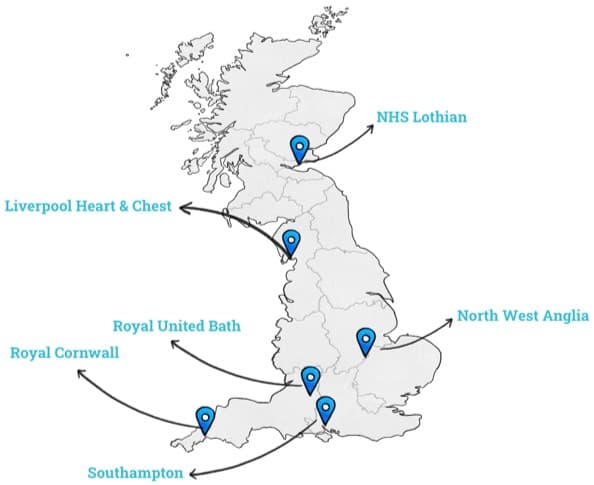

The INPACT study
A collaboration between Aidence, Hardian Health, and the University of Edinburgh, with funding from the UK’s National Health Service (NHS) through the AI in Health and Care Award.
Project overview
INPACT* is a joint evaluation programme into the human-machine relationship.
The aim is to get insights into the impact of an AI medical solution on radiology decision-making in lung cancer care.
*Investigating Nodule Protocol Adherence using CADe/x Technology
The reasoning
Most scientific literature on AI clinical applications focuses on their clinical validation, showing a device is safe, effective, and performs as intended.
On the other side, clinical outcomes - the endpoints we are trying to influence by introducing AI devices in care pathways - are largely unexplored because AI technology is still in its early stages.
INPACT is one of the few studies zooming in on the middle area: the real-world use of AI in clinical practice.


The AI solution
As part of INPACT, radiologists will report on chest CT scans in routine practice using our AI solution, Veye Lung Nodule. Veye automatically detects, measures, classifies and tracks the growth of pulmonary nodules as small as 3 mm. The study’s aim is to investigate Veye’s effect on physicians’ follow-up decisions.


The study design
Radiologists will first analyse the image unaided by Veye Lung Nodules. Then, they will provide a consecutive reading with access to Veye’s results. A radiology expert at each centre will independently evaluate all cases where one or more nodules were identified by either the radiologist or Veye.
We will use a mixed-method approach to analyse the results:
- Quantitative: The radiologist’s potential performance boost when using Veye Lung Nodules;
- Qualitative: The level of confidence that the radiologist has in understanding and accepting the outputs of Veye and using these outputs in their clinical decision-making.

Expert quotes
Get in touch
If your want to learn more about the project, contact us.






